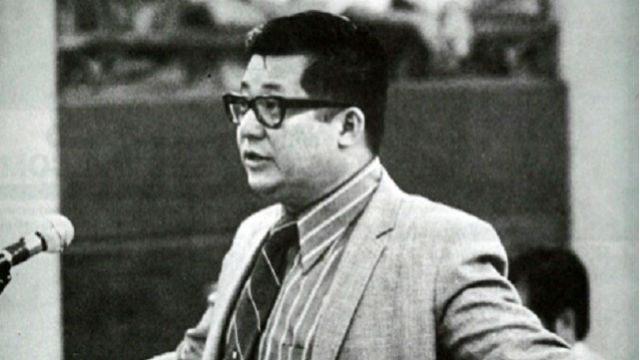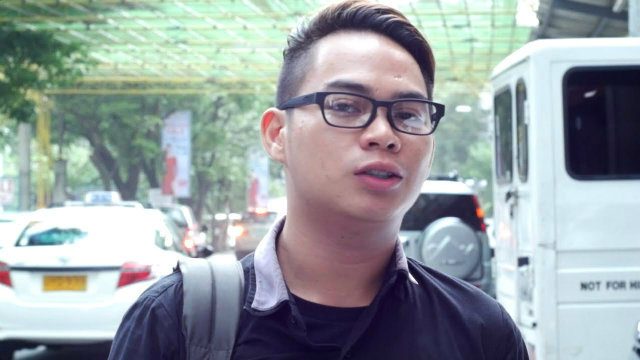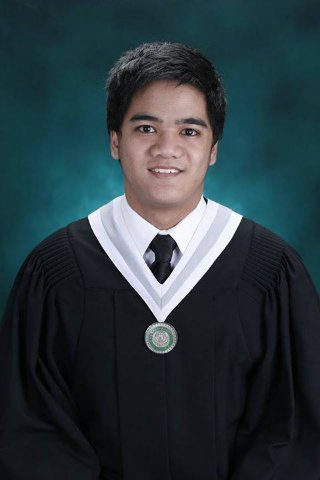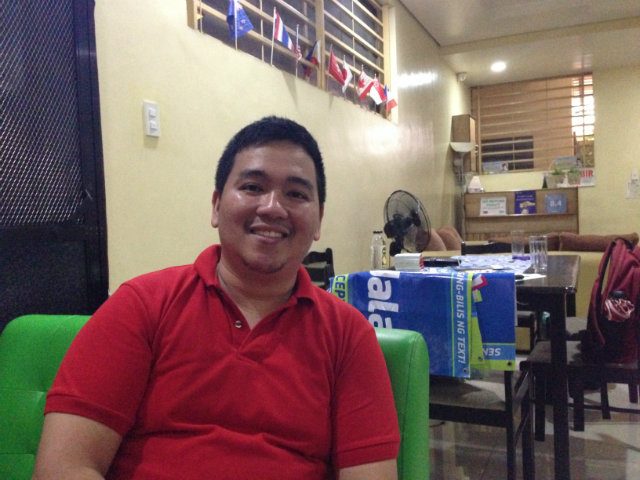SUMMARY
This is AI generated summarization, which may have errors. For context, always refer to the full article.

These are the immortalized words of senator Benigno “Ninoy” Aquino, Jr. He is the man whose face is on the P500 bill, whose name our country’s airports were taken after, and whose death we commemorate on August 21. He was assassinated 35 years ago.
In remembrance of one of the Philippines’ national icons, MovePH took to the streets of Manila to find out how much people today know about senator Aquino and whether they think his death is worth commemorating.
‘Who is Ninoy Aquino to you?’
When asked who Aquino is, those interviewed talked of his fight for democracy and his death by assassination.

“Ninoy Aquino is one of the past senators of the Philippines,” said UNICEF Brand Ambassador Paul Adrian Escaño, 22.
“He’s one of the people who fought, really fought for democracy during the Marcos’s regime.”
Aquino was a longtime politician and the youngest senator ever to be elected in the Philippines. He became one of the country’s most vocal critics of Ferdinand Marcos, condemning the former president and dictator for alleged human rights violations and corruption.
“He was able to speak his mind and [carry out] big responsibilities at a very young age,” said Jac Alfaro Guevarra, a first year student at Far Eastern University.
“As a communication student, I idolize him because from what I know he was a journalist and he was able to deliver and (expose) nothing but the truth.”
Shortly after Marcos imposed Martial Law in 1972, Aquino was accused of murder, subversion, and weapons possession. He was jailed along with other political dissidents. From within prison, Aquino remained an active and powerful political player.

“He put his foot down and said no to a man who was ruining the country,” said Maria Michaela Bautista, a 25-year-old selection manager at Teach for the Philippines.
“He was one of the few who actually made a difference in the fight against Marcos.”
Aquino went on a hunger strike for 40 days to protest injustices. He lost 36 to 54 kilos, growing weaker everyday.
In 1977, the Military Commission found Aquino guilty of all charges and sentenced him to death.
When asked what Aquino was to her, Bautista said, “To me? Well, I guess he is a symbol that just reminds me to fight for what I believe is right.”
“What is he famous for?”
In mid-March of 1980, after spending 8 years in prison, Aquino suffered a heart attack. He was permitted to go to the United States for a heart bypass operation. He stayed there as a refugee before returning to the Philippines in 1983. Upon arrival, he was shot.

“Aquino returned from exile and got assassinated while going down the plane in NAIA (Ninoy Aquino International Airport),” said Lorenzo Del Carmen, a recent graduate of De La Salle University.
Del Carmen believes Aquino’s assassination was the turning point in the fight against the Marcos dictatorship.
“His martyrdom…led to Ferdinand Marcos and his family leaving the Philippines,” he said.
Aquino’s death ignited protests across the country, culminating in the People Power uprising. Over two million Filipino civilians, fueled by years of resistance and opposition, took to EDSA to demonstrate against Marcos in the 3-day long non-violent revolution.

“[Aquino] inspired people to fight for their right,” said Kristoffer Atienza, 42, the owner of Crossroads Hostel.
“He was someone who [gave] people the idealism of being free, someone to follow.”
The uprising finally forced Marcos to leave the country to Hawaii in February 1986. Shortly after, Aquino’s wife, the late Corazon Aquino, was inaugurated as president and today, Aquino’s son, Benigno “Noynoy” Aquino III, serves as the country’s 15th president.
“Do you think it’s important that we have a day to celebrate him?”
Guevarra believes having a day to commemorate Aquino’s death is a way for the people to learn more about him.
“Nowadays, I’ve observed that if you ask some teenagers ‘Who is Ninoy?’, the only thing they can tell you is that he got assassinated, or maybe they would say, ‘I know that when his death anniversary comes, there are no classes’,” she said.
She admits that if she was not taking up communication at FEU, she probably would not know much about the national icon. She said it is important for today’s youth to “be aware of the sacrifices he made and also to (honor) his legacy.”

However, Khalela Talion, a recent graduate of De La Salle University, said there was no need for the Philippines to devote a day to celebrate senator Aquino.
“There are thousands of people who died for their country during Martial Law,” she said. “I’d rather celebrate their sacrifices as a whole than one person’s death. We Filipinos just like holidays.”
Atienza admitted that Aquino is a hero to a lot of people, but also echoed Talion’s sentiments.
“Is he my hero? Not to the fullest degree. His is a hero but as I understand now, anybody could have done it,” said Atienza.
He added that Aquino was “very courageous in being able to stand up against Marcos” during those draconian years, but “he had to give up his life” for change to happen.
“I admire him for what he has done but I won’t (consider him) a hero like Jose Rizal, who is a national hero,” he remarked.
“I just call him the very good leader but not a ‘hero’, hero.”
What about you? Who is Ninoy Aquino to you? – with interviews from Rappler interns/Rappler.com
Add a comment
How does this make you feel?
There are no comments yet. Add your comment to start the conversation.